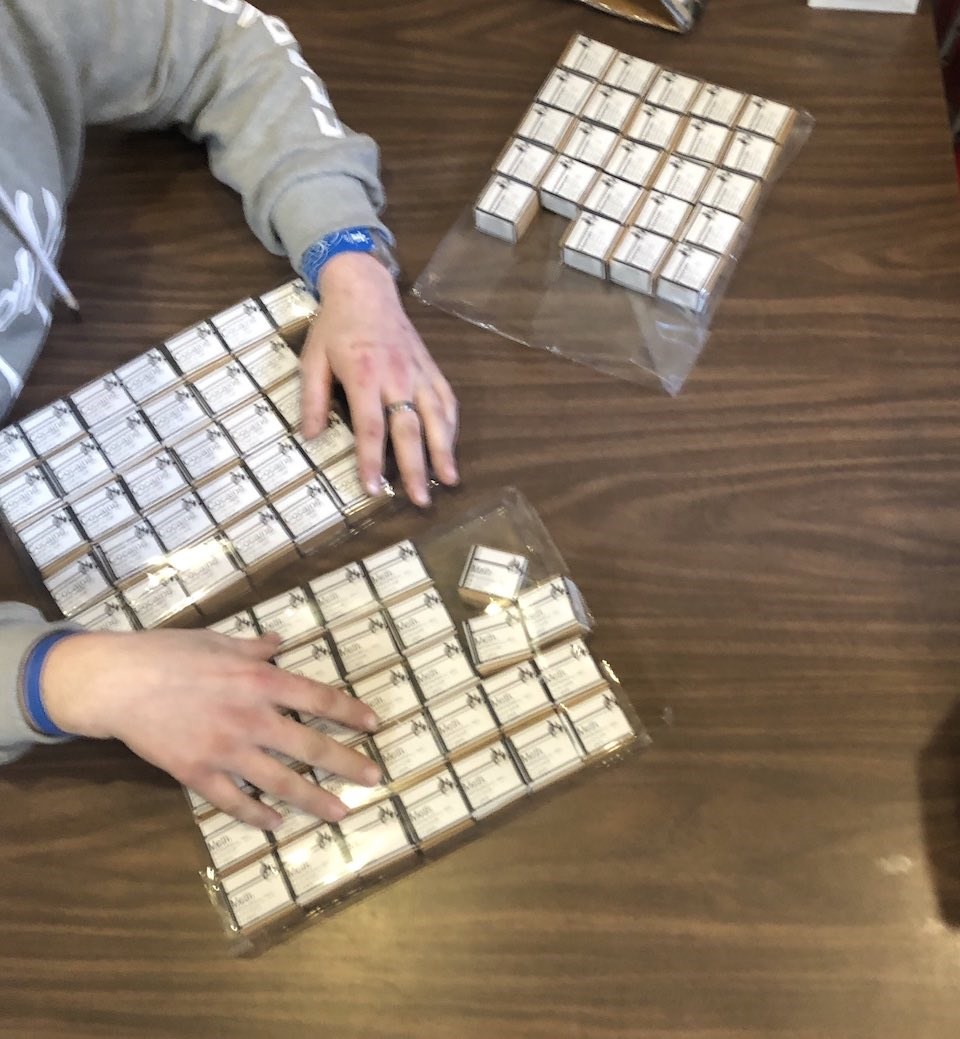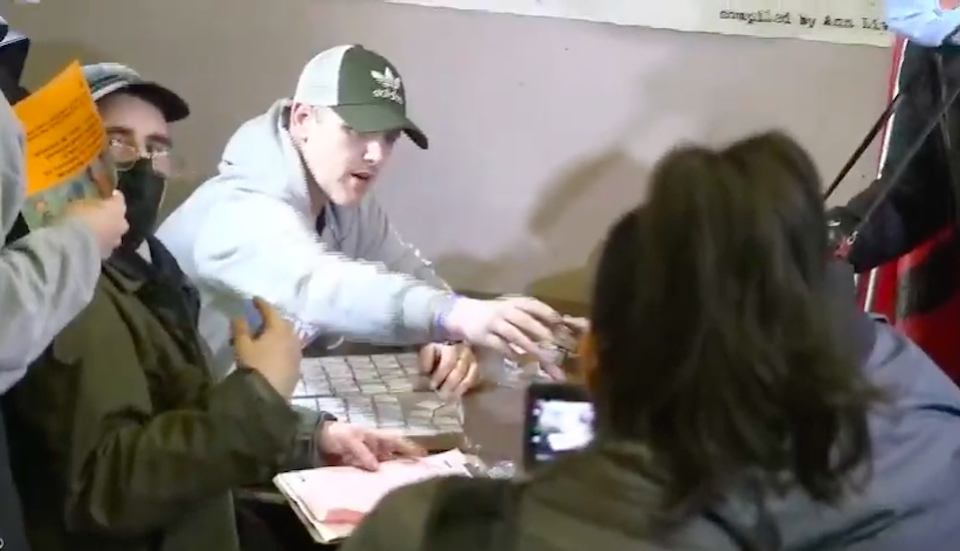"Many of us are on high doses of methadone and we're used to using poisonous street drugs."
That's Reija Jean, vice-president of the BC Association of People on Opiate Maintenance (BCAPOM), who started the group's weekly meeting with a grim acknowledgement of the barriers that people who use drugs face when trying to stay safe.
The BCAPOM and the Drug User Liberation Front (DULF) handed out three-and-a-half grams of cocaine, methamphetamine, and heroin at the meeting on Wednesday (Feb.9) at the VANDU headquarters located at 380 E Hastings St. The groups issued demands for immediate access to a safe supply of drugs and to hold B.C. politicians accountable for their response to the crisis that has claimed thousands of lives.
With overdose numbers increasing by over 25 per cent from 2020 with 1765 overdose deaths to 2021 with 2224 overdose deaths, the advocacy coalition said the response from all levels of government is "reprehensible."
"We're not saying what we are providing today is perfect," said Jean. "But this is an example of what's possible in a compassion club model. Our mandate is to reform the system and so we're encouraging you to give us feedback."
Members were encouraged to take the drugs that they wanted to try and then fill out a feedback form about their experience. Jean stated that this is an example of a "person-centred model" that focuses on the direct safety and experience of the person who uses drugs. "That person needs to come first," she explained
Eris Nyx, DULF co-founder, told V.I.A. that each user is asked if they overdosed from the drugs they were supplied at the event and no one ever has. They are also asked to rate the experience and most of them rate the cocaine and methamphetamine four out of five stars.
With heroin, Nyx noted that some users rate it lower because they actually want to inject fentanyl—and she says there should be a safe supply of fentanyl in the city, too. But given the current political climate, she says it isn't something that would be well-received.
Ultimately, the overdose crisis in B.C. continues to accelerate and more people will die unless urgent action is taken by the federal government, underscored Nyx.
What will it take for the federal or provincial government to take more meaningful action on the overdose crisis?
DULF co-founder Jeremy Kalikum is skeptical that anything will motivate the government. "I don't think it's dead people that are going to motivate the government," he highlighted, noting that the annual death toll has climbed dramatically for several years and nothing significant has changed.

The coalition notes that the B.C. government's idea of “safe supply” and Opioid Agonist Treatment (OAT) is "failing to meet the needs of many drug users in B.C. as shown by last year’s record-breaking overdose deaths.
"The 'safe supply' and OAT systems are rigid, punitive and have failed to keep pace with this crisis."
BCAPOM added that barriers are caused by private clinic fees, inferior methadone formulations, urine drug screening, the "fetishizing of Suboxone by OAT prescribers," and more.
“We have a message for the government of B.C.: the coroners' body count is your report card and you get an F," said Garth Mullins, board member of BCAPOM and host of Crackdown Podcast.
"We have lost confidence in you to deliver us from this apocalypse. So we are looking to our own ranks of activists for safe supply. We are breaking the law to try to keep each other safe. And we are calling on the B.C. Minister of Mental Health and Addictions and the Minister of Health to resign."
Legalization of drugs in Canada
Over the past year, DULF has distributed drugs at events aimed at demonstrating the life-saving potential of legalizing drugs. The drugs were handed out and were tested via "FTIR spectrometry and immunoassay" and were free of fentanyl, fentanyl analogues, benzodiazepines, and other harmful adulterants.
Appointed as B.C.'s first provincial health officer on May 3, 1999, Dr. Perry Kendall first declared the overdose crisis to be a public health emergency in April 2016. He told Â鶹´«Ã½Ó³» that it is "inexcusable and unethical" that a clean supply of heroin isn't available to people who use drugs.
, a Canadian non-profit pharma company, can supply DULF with injectable pharmaceutical heroin. The company is led by Kendall, who has been corresponding with the organization regularly.
"I think it is inexcusable that it is not more widely offered in Canada," he said. "I can think of no other evidence-based, effective treatment for a life-threatening condition that is withheld from individuals who could benefit from it.




